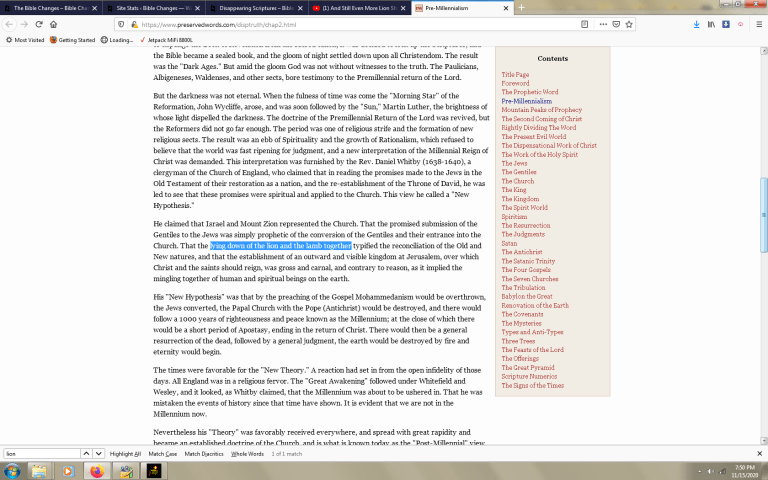Really now... Check this out. It's a passage I've preached countless times.
2 Corinthians 11:4 For if he that cometh preacheth another Jesus, whom we have not preached, or if ye receive another spirit, which ye have not received, or another gospel, which ye have not accepted, ye might well bear with him. (KJV as it is today)
Now dog gone it, I know dog gone well that we aren't to be listening to someone bringing another gospel, or another spirit, or other preaching that goes against what Paul was teaching and preaching. He wouldn't have told us to bear with that guy. Yet that's what he (Paul) says in the King James now. But I know well he (Paul) DIDN'T say that at all, just from my personal notes...
Did I mention "dog gone it"??? He said:
AS IT WAS: 2 Corinthians 11:4 For if he that cometh preacheth another Jesus, whom we have not preached, or if ye receive another spirit, which ye have not received, or another gospel, which ye have not accepted, ye might well bear with me. (KJV) The first place I found this was in my notes. And then I went to digging and below is what I came up with...
Please note: that verbiage is quintessentially King James. This I believe, was enough to wet my curiosity at least.
This is the thing, brother. I have the KJV the NIV and the Greek right here in my Greek Interlinear, and they all match up well. I don't see any significant differences, as you do! Here is how they read:
KJV: 4 For if he that cometh preacheth another Jesus, whom we have not preached,
or if ye receive another spirit, which ye have not received,
or another gospel, which ye have not accepted,
ye might well bear with him.
NIV: 4 For if someone comes to you and preaches a Jesus other than the Jesus we preached,
or if you receive a different spirit from the Spirit you received,
or a different gospel from the one you accepted,
you put up with it easily enough.
What is the significant difference between these versions that concern you and make you say, "Dog gone it!" ;)
But I do see that your own reference has someone saying it differently in the last clause, "ye might well bear with me." The clause should read "ye might well bear with him."
So part of my problem with this has been, I can't see where you're getting these versions, or statements. I don't know if they're a Bible version, or some preacher mis-quoting the text? All I'm saying is that both versions that I would personally consider reliable, the KJV and NIV, have the same words and the same meaning.
In the Greek, the last clause is ambiguous, and the reader must decide the meaning based on the context, which is quite obvious. In all languages, it is unnecessarily repetitive to reassert the parties when it is already understood who is meant.
In this case, kathos anechesthe refers to enduring something, I believe? But I'm not very knowledgeable about the Greek.
ἀνέχομαι | billmounce.com




